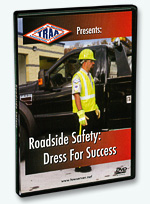Towing Resources
Tower Training
The Towing and Recovery Association of America (TRAA) has developed a three-level National Driver Certification Program. An increasing number of law enforcement agencies that contract with towers are now requiring TRAA certification as a qualification for participation in a contractual relationship. TRAA's training incorporates traffic incident management training.
The Atlanta Region's Traffic Incident Management Enhancement (TIME) Program sponsors a Towing and Recovery Incentive Program (TRIP) that provides participating towers who meet program requirements with incentives for meeting clearance goals. The TIME Task Force worked with the Towing & Recovery Association of Georgia to develop training requirements for towers who participate in the TRIP program. Training Requirements-Georgia Towing & Recovery Incentive Program (TRIP) describes training requirements. Training Course Outline - Georgia Towing & Recovery Incentive Program (TRIP) describes required course content for Level 1 - Operator, and Level 2, supervisor.
See the "Training Resources" section of this site for more training resources.
Tower Roadside Safety

Roadside Safety: Dress for Success
is a new video from the Towing and Recovery Association of America to help towers select high-visibility safety apparel that meets safety standards. It is a companion to TRAA's basic video on responder safety, entitled "Roadside Safety: Everyone Goes Home.
State Towing Regulations and Legislation
Virginia Board of Towing and Recovery Operators Proposed Regulations are out for public comment until March 21, 2008. Issues that the proposed regulation addresses include the following issues of concern to traffic incident management: rogue towing operators engaging in predatory towing or charging fees for services not rendered; towing operators who refuse to accept credit cards and demand cash; operators who use improper equipment for the job; and operators who do not conduct towing activities in a safe and effective manner. The proposed regulation requires TRAA certification of towing operators.
The Texas Tow Act (2007) establishes three classifications of towing operations, establishes requirements for each class, and requires a permit to operate in each class. The three clasifications are: (1) Incident Management Towing Operators; (2) Private Property Towing Operator; and (3) Consent Towing Operations Permit. As of September 1, 2008, TRAA (or equivalent--as approved by the Texas Dept. of Licensing and Regulation) certification is required for Incident Management and Private Property Towing Operators. Equipment and liability insurance requirements are established for Incident Management towing permits. Permitted incident management tow trucks may be used for all types of towing. After August 31, 2009, Incident Management Towing Operators wishing to renew their licenses must have completed a professional development course relating to towing.
Innovative Towing Programs
The I-95 Corridor Coalition's report on its April 2007 Scanning Tour of Innovative Towing Programs is a 50-page document with a wealth of information about best practices, lessons learned, innovative ideas, and the general state-of-the-practice for towing and recovery as it relates to quick clearance of highway incidents in the United States.
Nonconsensual Towing
There are two types of nonconsensual tows: (1) law-enforcement-ordered removal of a vehicle from public rights-of-way; and (2) "trespass tows," which is the removal of unauthorized vehicles from private property. Policies related to the first type of nonconsensual tow are an important issue in traffic incident management. In some cases, exorbitant towing fees are charged by unscrupulous tow operators, and the drivers involved may not have a meaningful choice regarding which towing and recovery company to employ, either because they are in an unfamilar area of the country, or because the tow is ordered by law enforcement using a rotation system.
Report to Congress on Review of Federal and State Laws Regarding Vehicle Towing (May 2007) is a report prepared for the Federal Motor Carrier Safety Administration to comply with a provision in the 2005 highway authorization bill (SAFETEA-LU) requiring the U.S. DOT to "conduct a study to identify additional means to protect the rights of individauls whose motor vehicles are towed." This report analyzes current Federal and State law and jurisprudence, and documents stakeholder views on nonconsensual towing. The towing industry generally supports State-level consumer protection laws regarding nonconsensual tows. Trucking industry stakeholders noted problems with the way law-enforcement tows are sometimes conducted from public ways, and called for increased State protections. Stakeholders generally were in favor of action to clear up confusion about State versus Federal authority in this area, calling on Congress to clearly delegate to the States power to regulate towing industry practices that affect consumer interests.
